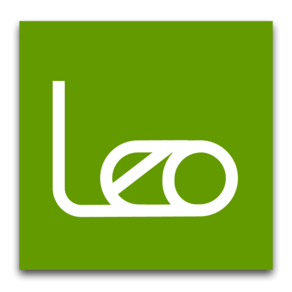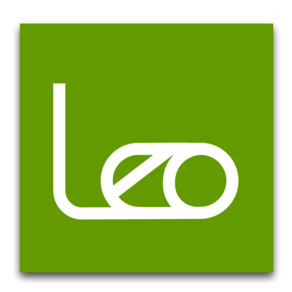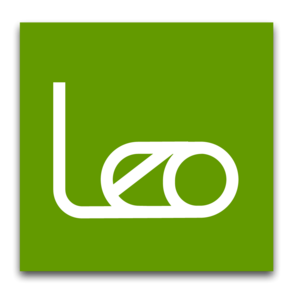Contributions to anthologies
2023
GEIGER, JAN-MARTIN; LIENING, ANDREAS; LIPPE, CHRISTIAN (2023): Projektarbeit mit digitalen Tools in der Ökonomischen Bildung: Ein Praxischeck im Bereich der Entrepreneurship Education. In: Brahm, T./Wiepke, C. (Hrsg.): Handbuch digitale Instrumente der Ökonomischen Bildung. Frankfurt/M.: Wochenschau Verlag, S. 273-286.
GEIGER, JAN-MARTIN; HATT, LUCY; MIZZI, EMANUEL; KRIEDEL, RONALD; KATONÁNÉ KOVÁCS, JUDIT; MOUNTFORD-BROWN, VICTORIA (2023): Threshold Concepts in Entrepreneurship Education and their Implications for Teaching and Learning. In: Block/Halberstadt/Högsdal/Neergard/Kuckertz (Hrsg.): Progress in Entrepreneurship Education and Training, 355-372. Cham: Springer International Publishing.
2021
LIENING, ANDREAS; GEIGER, JAN-MARTIN; KRIEDEL, RONALD; HAARHAUS, TIM (2021): University Technology Transfer as Control Parameter in Complex Entrepreneurial Ecosystems. In: Schultz, C./Mietzner, D. (Hrsg.): New Perspectives in Technology Transfer. Cham: Springer International Publishing.
2019
DINH, ANH; PÜPLICHHUYSEN, DIANA (2019): Viral Entrepreneurship: Die Wirkung von Vorbildern auf die Gründungsintention und Implikationen für eine vorbildzentrierte Entrepreneurship Education. In: Springer Fachmedien Wiesbaden: S. 174-189.
HAVES, MARINA; DINH, ANH (2019): Von der Angst vorm Scheitern und der Leidenschaft fürs Gründen. Zur Rolle von Emotionen in der Entrepreneurship Education. In: Springer Fachmedien Wiesbaden: S. 114-127.
LIENING, ANDREAS; GEIGER, JAN-MARTIN; HAARHAUS, TIM & KRIEDEL, RONALD (2019): Entrepreneurship Education und Industrie 4.0 aus hochschuldidaktischer Perspektive. In: Dany, S./Haertel, T./Terkowsky, K./Heix, S. (Hrsg.): Die vierte industrielle Revolution und ihre Herausforderungen für die Hochschullehre, S. 41-56. Bielefeld: wbv.
LIENING, ANDREAS; GEIGER, JAN-MARTIN; KRIEDEL, RONALD & SENDER, TILL (2019): Schwellenkonzepte in der Entrepreneurship Education – ein Identifizierungsansatz anhand von Denkrichtungen und Praxisfeldern. In: Bijedic, T./Ebbers, I./Halbfas, B.: Entrepreneurship Education. Begriff – Theorie – Verständnis.
2018
LIENING, ANDREAS; GEIGER, JAN-MARTIN & KRIEDEL, RONALD (2018): Bridging the Gap Between Invention and Innovation: The Role of University-Based Start-Up Programs and Private Cooperation. In: Presse, A. & Terzidis, O. (Hrsg.), Technology Entrepreneurship. Insights in New Technology-Based Firms, Research Spin-Offs and Corporate Environments, 241-260. Cham: Springer International Publishing.
SCHIMANSKI, MAXIMILIAN; SENDER, TILL & LIENING, ANDREAS (2018): Zur Lernwirksamkeit spielerischer Lernsituationen in der Ökonomischen Bildung. In: Arndt (Hrsg.): Intentionen und Kontexte Ökonomischer Bildung, 41-56. Schwalbach/Ts.: Wochenschau Verlag.
GEIGER, JAN-MARTIN; KRIEDEL, RONALD & LIENING, ANDREAS (2018): Conceptual Change Prozesse in der Ökonomischen Bildung: Zur intendierten Wirkung entrepreneurialer Lernarrangements. In: Arndt, H. (Hrsg.): Intentionen und Kontexte Ökonomischer Bildung, 138-148. Schwalbach/Ts.: Wochenschau Verlag.
2017
SCHIMANSKI, MAXIMILIAN; SENDER, TILL & LIENING, ANDREAS (2017): Zur Bedeutung mathematischer Fachkenntnisse in der universitären Ausbildung angehender Lehrerinnen und Lehrer im Fach Wirtschaft. In: Arndt (Hrsg.): Perspektiven der Ökonomischen Bildung: Disziplinäre und fächerübergreifende Konzepte, Zielsetzungen und Projekte, Schwalbach/Ts.: Wochenschau Verlag.
LIENING, ANDREAS; GEIGER, JAN-MARTIN & KRIEDEL, RONALD (2017): Zur Interdisziplinarität unternehmerischen Denkens und Handelns. In: Arndt (Hrsg.): Perspektiven der Ökonomischen Bildung: Disziplinäre und fächerübergreifende Konzepte, S. 210-219. Schwalbach/Ts., Wochenschau Verlag.
LIENING, ANDREAS; GEIGER, JAN-MARTIN; KRIEDEL, RONALD & SENDER, TILL (2017): Schwellenkonzepte in der Entrepreneurship Education – ein Identifizierungsansatz anhand von Denkrichtungen und Praxisfeldern. In: Bijedic, Teita; Ebbers, Ilona & Halbfas, Brigitte (Hrsg.): Entrepreneurship Education. Begriff – Theorie – Verständnis.
LIENING, ANDREAS; SCHIMANSKI, MAXIMILIAN & SENDER, TILL (2017): Zur Bedeutung mathematischer Fachkenntnisse in der universitären Ausbildung angehender Lehrerinnen und Lehrer im Fach Wirtschaft. In: Arndt (Hrsg.): Perspektiven der Ökonomischen Bildung: Disziplinäre und fächerübergreifende Konzepte, S. 344-356. Schwalbach/Ts., Wochenschau Verlag.
2016
LIENING, ANDREAS; GEIGER, JAN-MARTIN; KRIEDEL, RONALD & WAGNER, WALDEMAR (2016): Complexity & Entrepreneurship: Modelling the process of Entrepreneurship Education through the Theory of Synergetics. In: Berger, Elisabeth & Kuckertz, Andreas (Hrsg.): Complexity in Entrepreneurship, Innovation and Technology Research. Applications of Emergent and Neglected Methods, S. 93-115. Chur, Springer International Publishing.
LIENING, ANDREAS; GEIGER, JAN-MARTIN; KRIEDEL, RONALD; LAHME, CORNELIUS; SENDER, TILL & WAGNER, WALDEMAR (2016): Synergetische Ökonomische Bildung – Theoriebildung und praktische Einbettung am Beispiel des Dortmunder Modells der Entrepreneurship Education. In: Arndt, Holger (Hrsg.): Das Theorie-Praxis-Verhältnis in der Ökonomischen Bildung, S. 57-69. Schwalbach/Ts., Wochenschau Verlag.
2015
LIENING, ANDREAS; SENDER, TILL & MITTELSTÄDT, EWALD (2016): Theorie und Praxis der technologieorientierten Lerndiagnostik in der Ökonomischen Bildung. In: Arndt, Holger (Hrsg.): Das Theorie-Praxis-Verhältnis in der Ökonomischen Bildung, S. 173-186. Schwalbach/Ts., Wochenschau Verlag.
LIENING, ANDREAS; GEIGER, JAN-MARTIN & VOGLER, KERSTIN (2015): Interesse als Grundlage kognitiver Aktivierung. Welche Faktoren fördern die Aufmerksamkeit von Schülerinnen und Schülern hinsichtlich Ökonomischer Bildung? In: Arndt, Holger (Hrsg.): Kognitive Aktivierung in der Ökonomischen Bildung, S. 88-102. Schwalbach/Ts., Wochenschau Verlag.
LIENING, ANDREAS; KRIEDEL, RONALD & WAGNER, WALDEMAR (2015): Die Entre-preneurship School – Ein EXIST-Projekt im Rahmen von tu>startup. In: Teichert, Jörg, Ofianka, Roland & Jendrosch, Annette (Hrsg.): Universitäre Gründungsförderung. Abläufe, Akteure, Erfolge, S. 145-155. Münster, New York, Waxmann.
STRUNK, GUIDO; ROSE, MICHAEL; SENDER, TILL; WAGNER, WALDEMAR & LIENING, ANDREAS (2015): Kognitive Aktivierung als Prozess. In: Arndt, Holger (Hrsg.): Kognitive Aktivierung in der Ökonomischen Bildung, S. 60-74. Schwalbach/Ts., Wochenschau Verlag.
2014
LIENING, ANDREAS (2014): Synergetische Wirtschaftsdidaktik: Ein kraf(f)tvoller Ansatz für die Ökonomische Bildung. In: Müller, Christian, Schlösser, Hans Jürgen, Schuhen, Michael & Liening, Andreas (Hrsg.): Bildung zur sozialen Marktwirtschaft. Festschrift zum 80. Geb. von Dietmar Krafft, S. 55-74. Stuttgart, Lucius & Lucius.
MITTELSTÄDT, EWALD; VOGLER, KERSTIN & LIENING, ANDREAS (2014): Delphi-Studie „Leitbild Netzwerk Finanzkompetenz NRW“. In: Retzmann, Thomas (Hrsg.): Ökonomische Allgemeinbildung in der Sekundarstufe I und Primarstufe, S. 32-42. Schwalbach, Ts., Wochenschau Verlag.




